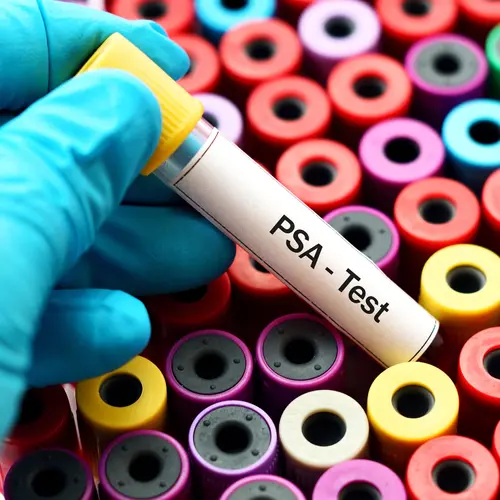Cryotherapy uses extremely cold temperatures to freeze and destroy cancer tissue in the prostate. There are few long-term studies that focus on cryotherapy as a treatment for prostate cancer.
The prostate gland surrounds the bottom of a man's bladder and about the first inch of the urinary tube, or urethra. It has a key role in male reproduction. The prostate gland secretes seminal fluid. That fluid combines with sperm to make semen.
As a man ages, the prostate often becomes the target of several problems. One of these is prostate cancer. In 2022, an estimated 260,000 men in the U.S. were diagnosed with prostate cancer. It is the most commonly diagnosed cancer in American men after non-melanoma skin cancer.
Even with early intervention and conventional treatment, 30% to 40% of men experience a recurrence of prostate cancer. That means they will need further treatment. Some experts think cryotherapy is an option for treating recurrent prostate cancer, especially if initial radiation therapy did not kill enough cancer cells.
How is cryotherapy done?
With cryotherapy, an ultra-thin metal probe or needle is inserted into the prostate gland. This is done through an incision that lies between the anus and scrotum. To protect the urethra from the procedure's icy temperatures, a warm saline solution flows through a catheter.
The surgeon uses visual information produced by ultrasound as a guide during the process. A freezing liquid, such as liquid nitrogen or more commonly, argon gas, is infused through the probe into the prostate gland. The intense cold freezes the prostate and destroys any cancerous tissue it contains. Using the images from the ultrasound to identify the cancer tissue, the surgeon can limit damage to normal prostate tissue.
How does cryotherapy destroy prostate cancer?
Any living tissue -- healthy or unhealthy -- cannot tolerate extreme cold. Infusing nitrogen or argon gas into the prostate gland rapidly extracts heat from the gland. As heat is drawn out, there is an instantaneous swell of ice crystals or ice balls. This results in the rupture of cell membranes. That's followed by tissue damage and, ultimately, cell death.
After the cancer cells are destroyed, white blood cells clean up the dead cells and tissue. Some studies show that during this process, the immune system strikes out and attacks cancer cells that still remain.
Are there advantages to using cryotherapy for prostate cancer?
There are few long-term studies on cryotherapy and prostate cancer. Some experts believe, though, that cryotherapy offers several advantages over surgery and radiation. Those advantages may be particularly noticeable in early-stage prostate cancer. For instance, cryotherapy is a less invasive procedure. It can be done using an epidural or spinal instead of general anesthesia. This may benefit older men with prostate cancer. It can also benefit men who have other conditions such as diabetes, heart disease, or lung disease.
Other advantages with cryotherapy include:
- Less blood loss
- Shorter hospital stay (usually one or two nights)
- Shorter recovery period
- Much less swelling and pain than with standard surgery for prostate cancer
If needed, cryotherapy can be followed with other conventional therapies, such as radiation therapy or surgery.
One recent study followed men with prostate cancer for a period of 10 years. In that study, researchers concluded that cryotherapy might be as effective as radiation and other common treatments for prostate cancer. Cryotherapy, though, wasn't directly tested against those more established treatments.
What are the risks of cryotherapy for prostate cancer treatment?
Whether cryotherapy is effective in eliminating prostate cancer hasn't been proven. Experts say that sometimes the freezing liquid fails to kill all of the cancer cells. As a result, there is a chance that prostate cancer will come back.
Also, the potential side effects of cryotherapy for prostate cancer are undesirable for some men. These side effects may include:
- Injury to the urethra and bladder
- Serious infections as a result of the injury
- Obstruction or blockage of the urethra
In addition, the risks of cryotherapy are similar to other prostate cancer treatments. They include:
- Impotence
- Incontinence
- Recurrence of prostate cancer
Without long-term studies, the jury is still out on who should consider cryotherapy to treat prostate cancer. Some experts believe cryotherapy may be most effective for recurring prostate cancer that's limited to the prostate gland.

